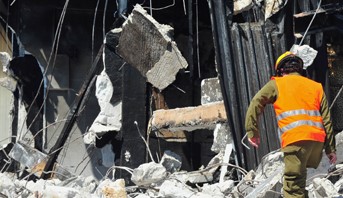The total economic cost of the devastating earthquakes to hit Turkey this month could exceed US$25bn, with potential insured losses of over US$5bn, according to risk modeling firm Moody’s.
The loss estimates are based on an analysis of the 6 February earthquake sequence using Moody’s RMS Europe earthquake models and reflect damage to property and contents, and business interruption, across residential, commercial, and industrial lines in Turkey. These estimates do not include post-event loss amplification or losses to non-modeled exposures such as transport and utility infrastructure. These loss estimates reflect the impact of the earthquakes in Turkey only and do not include losses in neighbouring Syria.
Nilesh Shome, vice president of earthquake model development at Moody’s RMS, said: “The earthquakes ruptured geometrically complex faults with multiple branches and were part of an active sequence that included over 400 events of Mw4 or greater. It is very unusual for an earthquake to trigger another event of such a magnitude as the Mw7.5 earthquake. The two largest earthquakes generated significant ground motions, and many areas were impacted by both events.”
According to the Turkish government, 11 provinces were severely affected by the earthquakes, and the damage was worst in Gaziantep, Hatay, and Kahramanmaraş. Over 41,000 are believed to have died in Turkey. As of 22 February, over 335,000 buildings are reported to have been damaged. A unique contributor to the overall loss is that most of the economic losses due to shaking can be attributed to structures with severe damage that have either already collapsed or will require demolition.
Moody’s warn that the road to recovery in Turkey will take several years due to the scale of the damage, and complex macroeconomic conditions that existed prior to the events – including significant inflation – will hamper the reconstruction and add to the overall costs.
Laura Barksby, product manager at Moody’s RMS, added: “The events highlighted the devastation that can arise when large magnitude events coincide with vulnerable building stock. We continue to learn from each significant earthquake, and the events in Turkey act as a wake-up call for other earthquake-prone regions, particularly concerning the true quality of the building stock.”
Printed Copy:
Would you also like to receive CIR Magazine in print?
Data Use:
We will also send you our free daily email newsletters and other relevant communications, which you can opt out of at any time. Thank you.













YOU MIGHT ALSO LIKE